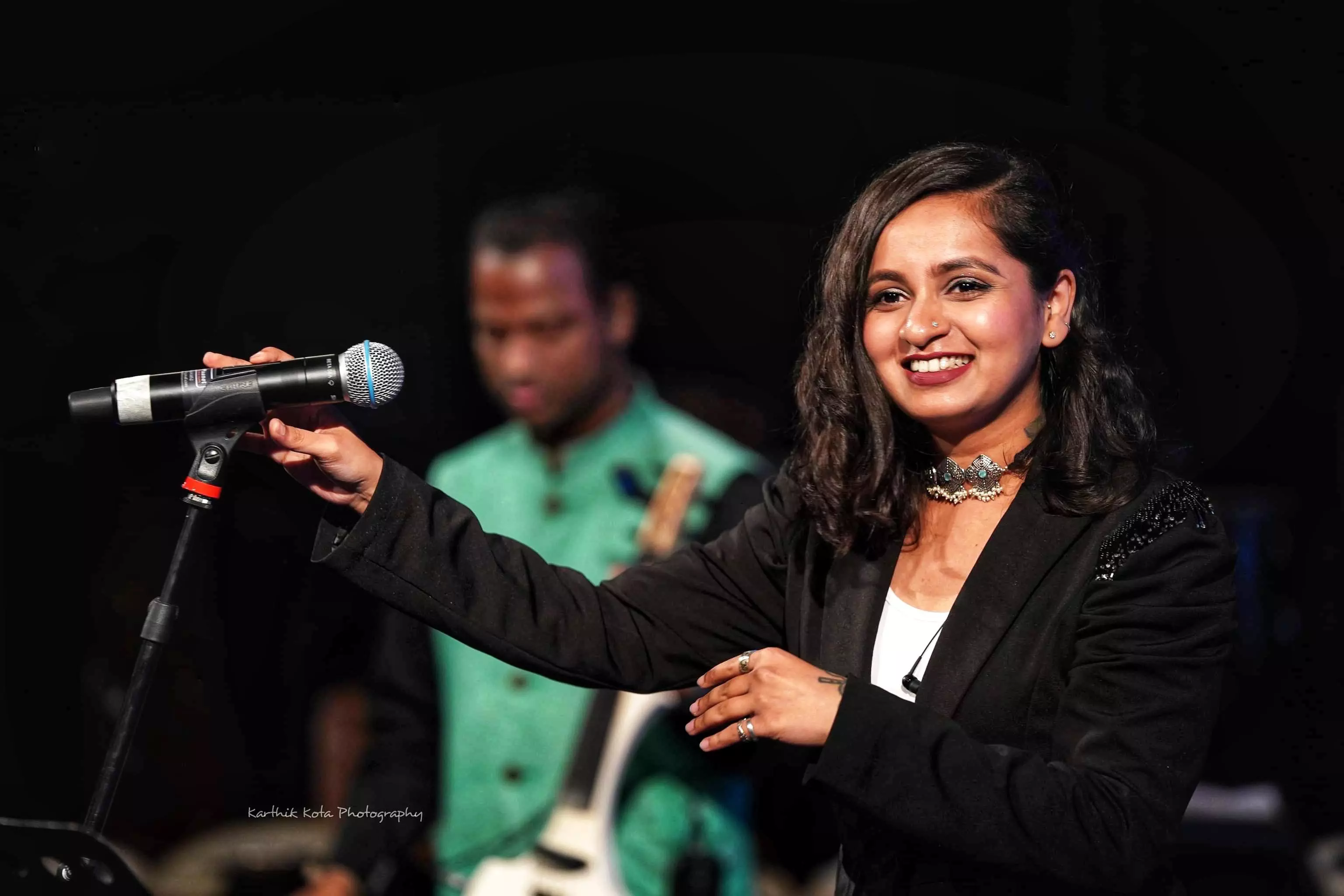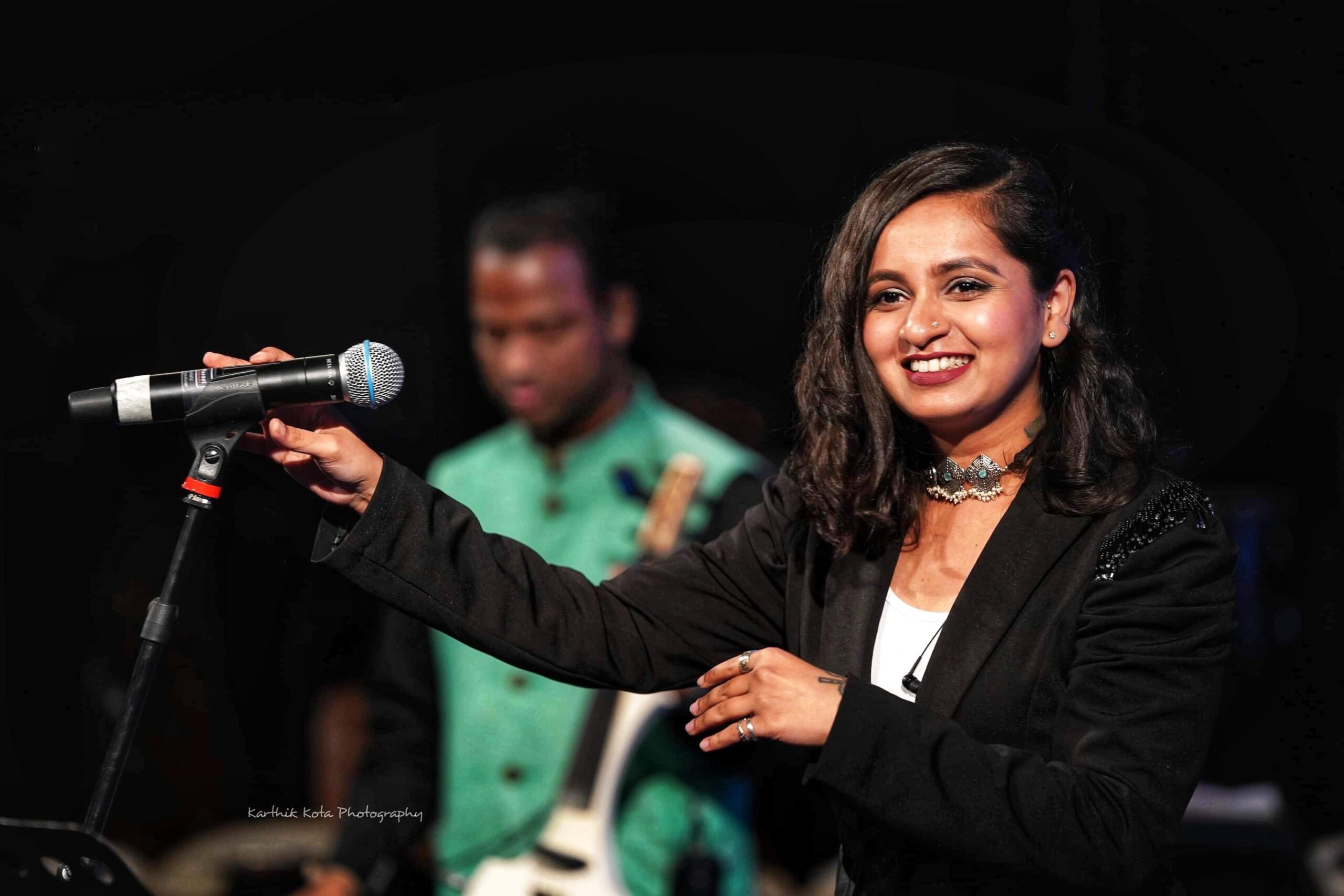
Varijashree Venugopal, a child prodigy turned Grammy nominee, is redefining the boundaries of Indian classical music with her innovative fusion approach. We caught up with the talented singer and flautist to talk about her musical journey, her Grammy nomination, and what’s next for this talented artist.
How does it feel to be nominated for a Grammy, and what does this recognition mean to you?
As an independent artist, I feel that acknowledgments on a global platform such as the Grammys amplifies the visibility of both the artist, and the art form. As a musician who comes from a classical background who has later branched out into various cross-cultural and interdisciplinary formats, I have always found it challenging to have a good amount of and the right kind of audience, like any other independent artist. This development now, I feel, comes with the privilege of reaching out to the world of music lovers on a larger scale, and that of course comes with a creative responsibility, which I shall carry with honour. I take immense pride in celebrating the cultural roots of classical and classical-allied music of our land, and in spreading its joy all around the world in the best and humble ways that I can. This nomination has been a source of inspiration and energy-boost in my journey as a seeker of music.
Your collaboration with Jacob Collier on “A Rock Somewhere” led to this nomination. Can you share your experience working with him?
I have been a great fan and admirer of the genius and musicality of Jacob Collier, who is a rare phenomenon. We have both been in touch on social media and have been aware of each other’s musical journeys. Collier invited me to be a part of this collaboration for the song ‘A Rock Somewhere’ also featuring Anoushka Shankar. The ideation and discussion happened remotely, and I tracked my voice in Bangalore. My participation in this song is as a vocalist/voicetrumentalist, and my singing is non-lyrical, with structured and improvisational singing. Collier has been someone who’s always inspired by various music cultures from across the world, which he imbibes, features, and brings together in his works. His idea for this song was to bring together Indian textures, elements and singing/playing styles into a western global format, and I think this is what made him imagine the idea of my voice as part of this concoction of sounds. I absolutely loved the process of recording my voice on this, and finding ways to be a part of this blend. Everything has come together beautifully well!
How do you blend Carnatic music with global styles, and what inspires your fusion approach?
Training in an intricate and rich format of classical music, such as Carnatic music, has enabled me to approach, appreciate, understand, and apply the music fundamentals into any genre that I am getting to work as a part of. I started performing at a very young age. I will soon be completing 30 years of performing experience out of which the past 15 years or more have been more explorative with respect to application of Indian music in the global or world music format. Indian classical music in general has a huge space for improvisation, where the artist expresses their thoughts and emotions using the very intricately designed set of fundamentals of ragas and talas that we are taught to be mastered over a period of decades, which go on to become a toolkit/medium that helps in the application of Indian music in any context. This is the exact space of improvisation that I am navigating, during my role as a voicestrumentalist, in a context where it might or might not have lyrics, but there is the presence of the voice. In a context where there are no lyrics, I get to sing using different styles of improvised vocals to and weave a story, creating an emotional premise with various musical phrases relevant to the style and soul of any given composition.
The most interesting aspect of collaborative projects where two or more music styles and thought processes come together is how we stay true to and hold on to our mother style and at the same time, understand the beauty of the other styles that are involved in the process of the music making. On top of all of this, the magic happens when all the styles blend tastefully, to create a unique concoction. Once we hit the sweet spot, it goes beyond the musical styles/traditions and inspires all the individual artists involved in the process to contribute the juice of all the experience they have collected over the years into this one piece of work.
As a child prodigy, what drove your passion for music, and who were your earliest influences?
I have been fortunate to be born into a musical family. Both my parents are musicians and my first Gurus, and that is how music became my first mother tongue. All the conditioning that I received as a child, through listening to the flute lessons my father was conducting on a daily basis, getting to watch concerts frequently, and being around some of the most seasoned musicians in town, nurtured my innate fascination with music and helped me figure out that this is what I want to be doing. I later on had the opportunity of being trained under some of the best Gurus in Carnatic music.
As a curious student of music that I was, I would be excited to listen to any and all kinds of music from all around the world. My parents were encouraging to this, by procuring cassettes and CDs of many global music projects, such as Shakti, John McLaughlin, and more. Apart from the Indian legendary artists that I grew up listening to, my mind was boggled when I listened to exemplary musical legends from the West such as Bobby McFerrin, Ella Fitzgerald, John Coltrane, Miles Davis, Chick Corea, and more. This was the phase which opened my mind to the explorative zone of transcribing everything vocal or instrumental, into Indian notations, and later trying to sing them. Most of these were non-lyrical representations that I would try out with my voice with the Indian solfege or the Swara system. This whole exercise that I was practising to expand my vocal capabilities is still my guiding light and my alphabet and language when it comes to the application of Indian music and singing styles in a cross-genre or interdisciplinary global music platform. This singing style of blending into any music has been loved and appreciated by many artists from around the world, giving me reassurance that this is working and making an impact.
What’s next for you after this Grammy nomination, and are there any upcoming projects or collaborations?
This nomination has indeed been inspirational and encouraging for me as an independent artist. My general goal remains to be the same – to keep learning in every available opportunity and to keep my creative fires burning. I will always take pride in celebrating my roots in all possible ways. The universe has been kind in providing me valuable opportunities to present my own music, and to be part of collaborations across the world.
The next thing that’s in the pipeline is a live performance session (with video) that I’m producing from the repertoire of my recently released album ‘Vari’ produced by Michael League.
Apart from that, I have been conducting workshops across the world where I share some of the most magnificent concepts of Carnatic music with students and music lovers, which I look forward to doing more of.
How do you see your music contributing to cultural exchange and understanding between India and the global music community?
There have been many legendary musicians from India in the past and present, who have been striving towards spreading the joy of Indian music through education, performances, and collaborations with artists of various disciplines. Indian music has been represented in the global platform very evidently since many decades, and more so, now.
This path that has been created is a beautiful space for learning, mutual respect, with a give and take of ideas and thoughts. In this space of infinite possibilities, many new sounds are born, which celebrate the roots and music from many different cultures, and I consider it an honour to follow this path. I’m looking forward to writing more of my own original music and representation of the love that I have for the music of India, in a global format.
After a certain point, the vision and the intention of all the participating creators merge into one, and it just becomes ‘music’. That’s the space that I, like any other musician, would want to be in.
